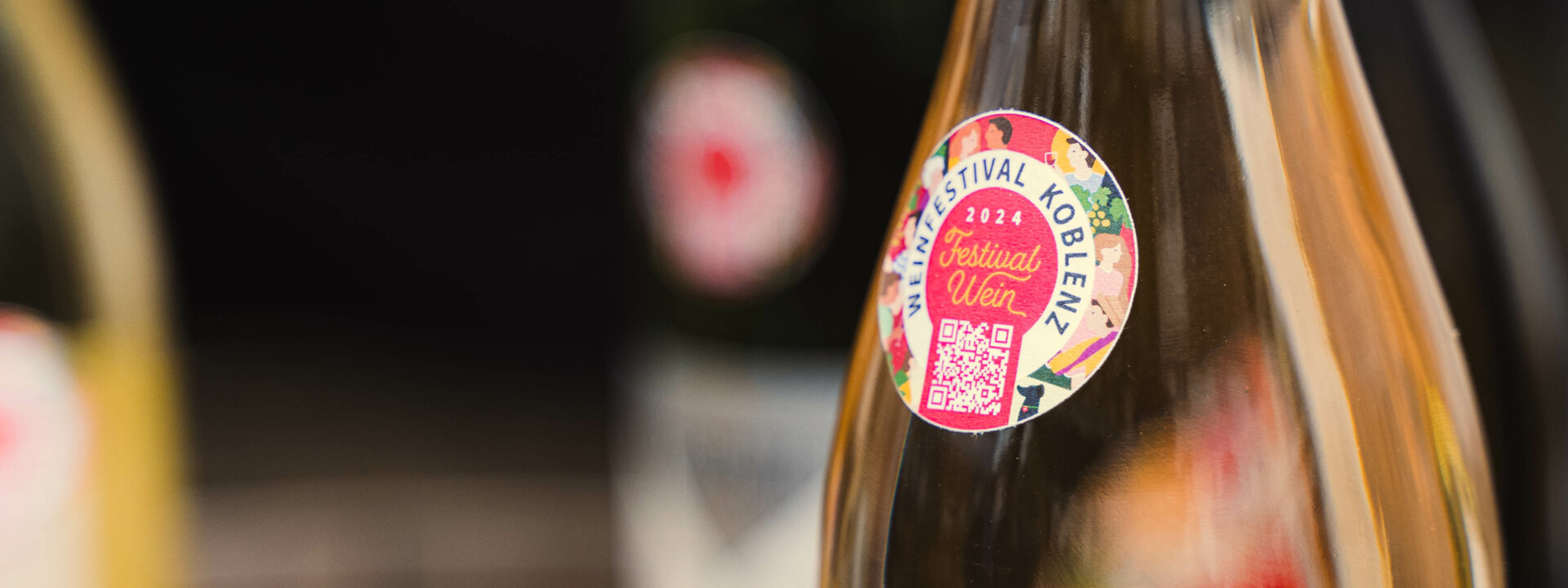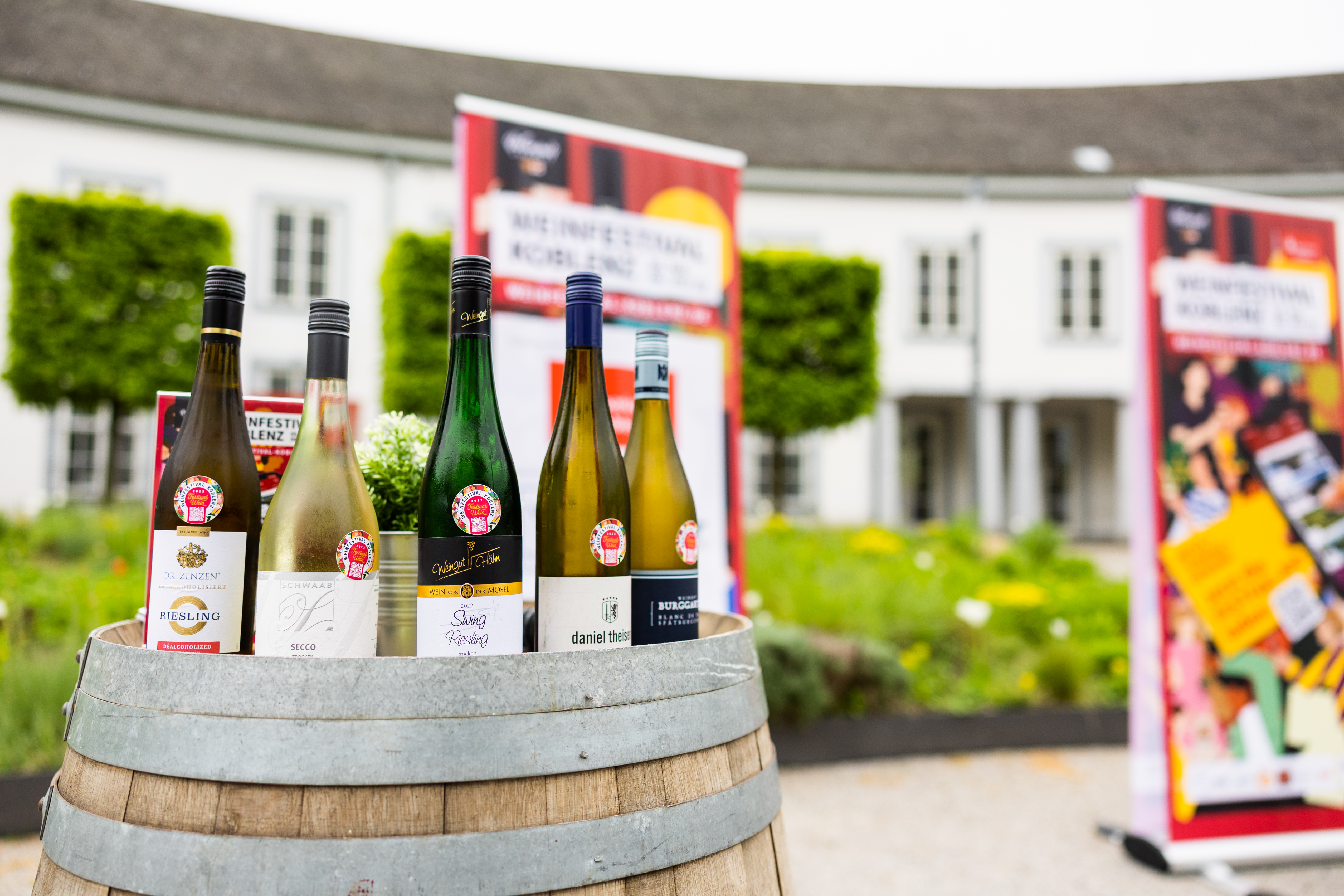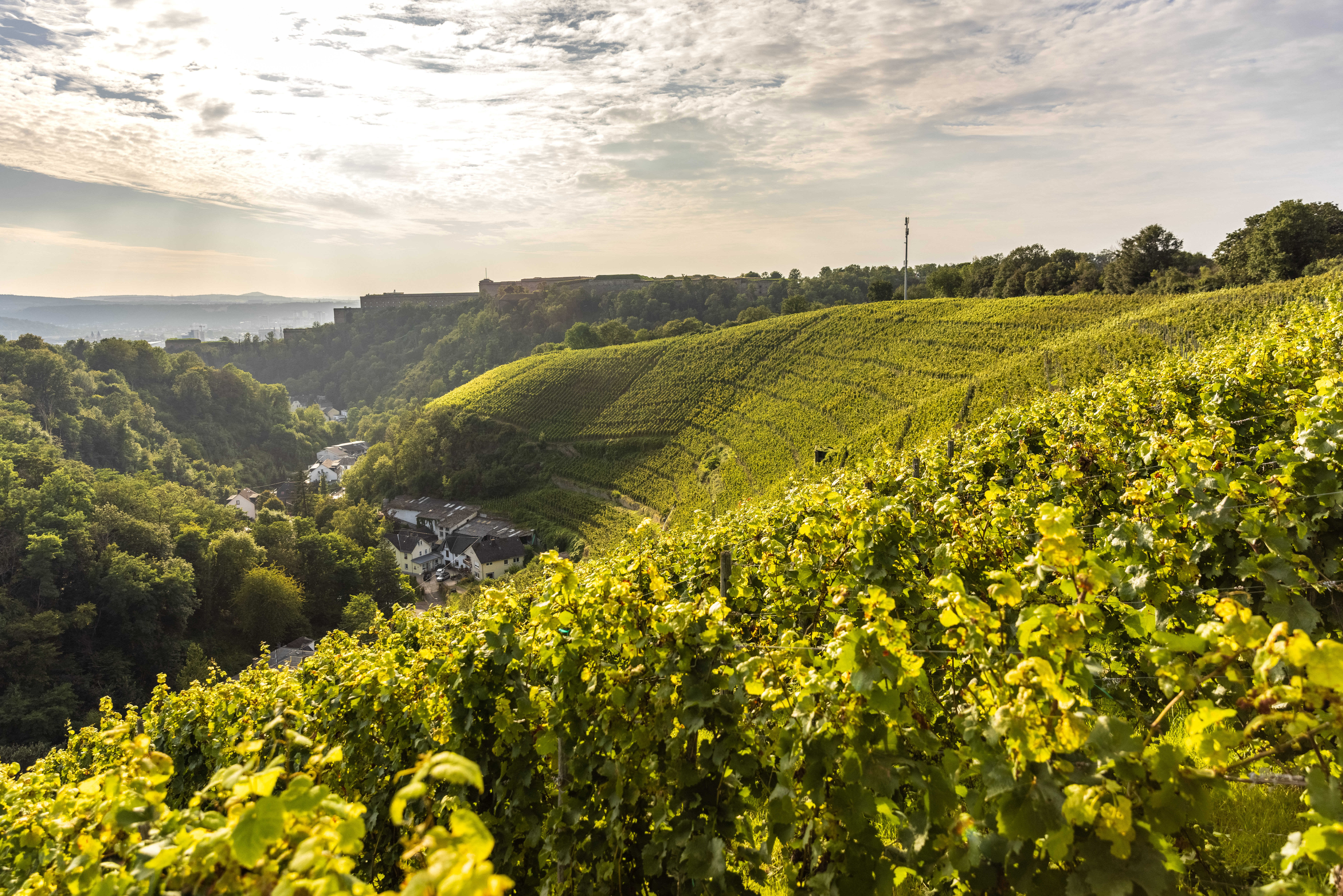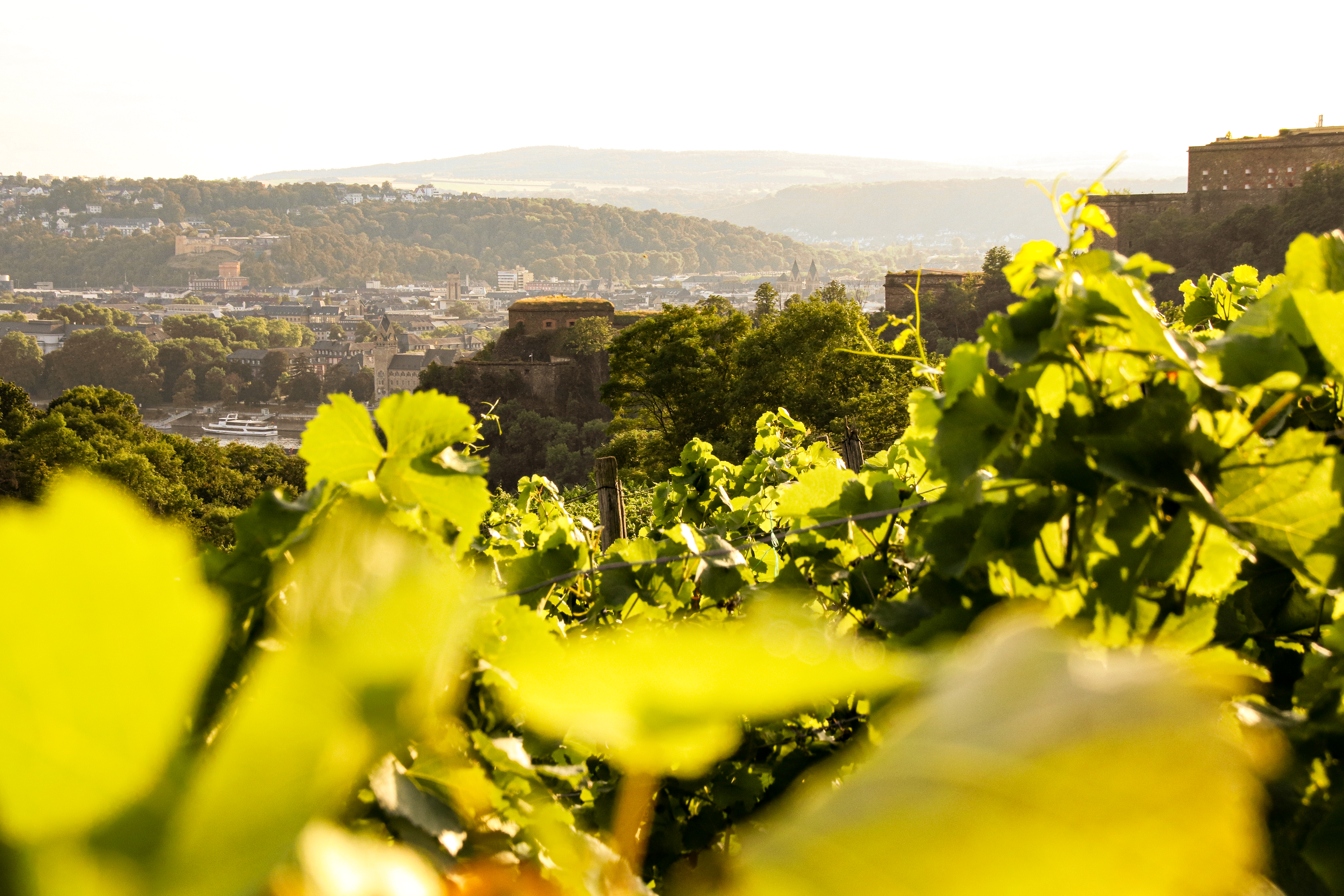Festival Wines, wineries & Wine regions

11 wines
Get to know the wines of the 2025 Koblenz Wine Festival.
11 Festival Wineries
Find out all about the 2025 festival wineries
5 Wine Regions
Koblenz, Moselle, Middle Rhine, Ahr & Rheinhessen
Koblenz Wine Festival 2025
Wine list
Discover the 11 exquisite wines of the Koblenz 2025 Wine Festival.
A 16-member jury, consisting of representatives from regional wine organizations, restaurants and the regional wine kings of the Moselle, Middle Rhine and Ahr, tasted the 120 wines together with Mayor Ulrike Mohrs in a blind tasting.
This was led by Alexander Alsbach, owner of the "GenussZimmer", the well-known Koblenz wine shop.
The festival wines reflect the diversity of the participating wine regions—with wines that showcase the regional characteristics and grape varieties in all their facets.
A 16-member jury, consisting of representatives from regional wine organizations, restaurants and the regional wine kings of the Moselle, Middle Rhine and Ahr, tasted the 120 wines together with Mayor Ulrike Mohrs in a blind tasting.
This was led by Alexander Alsbach, owner of the "GenussZimmer", the well-known Koblenz wine shop.
The festival wines reflect the diversity of the participating wine regions—with wines that showcase the regional characteristics and grape varieties in all their facets.
View the wine list

Koblenz Wine Festival 2025
Festival wineries
Get to know the 10 wineries of the Koblenz 2025 Wine Festival.
The festival wines of the Koblenz 2025 Wine Festival come from eleven selected wineries from four renowned wine regions and exemplify the stylistic range of the region. The Terrassenmosel is represented by three wineries whose Rieslings and Chardonnay wines impressively reflect the terroir of the steep Moselle slope. A Pinot Noir "Blanc de Noir" from the Middle Rhine completes the range.The Ahr will be contributing three more wineries to the festival program with Burgundy and Riesling wines full of character.
Weinstadt Koblenz will be showcasing its viticultural diversity with three wineries.
This year, for the first time, the de-alcoholized wine will come from Rheinhessen.
The festival wines of the Koblenz 2025 Wine Festival come from eleven selected wineries from four renowned wine regions and exemplify the stylistic range of the region. The Terrassenmosel is represented by three wineries whose Rieslings and Chardonnay wines impressively reflect the terroir of the steep Moselle slope. A Pinot Noir "Blanc de Noir" from the Middle Rhine completes the range.The Ahr will be contributing three more wineries to the festival program with Burgundy and Riesling wines full of character.
Weinstadt Koblenz will be showcasing its viticultural diversity with three wineries.
This year, for the first time, the de-alcoholized wine will come from Rheinhessen.
Find out more about the wineries

Koblenz Wine Festival 2025
Wine regions
The Koblenz Wine Festival focuses on Weinstadt Koblenz and the Moselle, Middle Rhine and Ahr wine regions.
The Koblenz Wine Festival invites you to discover the rich wine landscape around Weinstadt Koblenz in all its facets. It includes traditional wine regions such as the Moselle, Middle Rhine and Ahr as well as Weinstadt Koblenz - each with its own character and a long history of wine culture. The steep slate slopes of the Moselle, the impressive terraces of the Middle Rhine and the volcanic soils of the Ahr give the wines their unmistakable signature.
This year's selection is complemented for the first time by a non-alcoholic wine from Rheinhessen—the largest wine region in Germany
The Koblenz Wine Festival invites you to discover the rich wine landscape around Weinstadt Koblenz in all its facets. It includes traditional wine regions such as the Moselle, Middle Rhine and Ahr as well as Weinstadt Koblenz - each with its own character and a long history of wine culture. The steep slate slopes of the Moselle, the impressive terraces of the Middle Rhine and the volcanic soils of the Ahr give the wines their unmistakable signature.
This year's selection is complemented for the first time by a non-alcoholic wine from Rheinhessen—the largest wine region in Germany
Learn more about the wine regions
